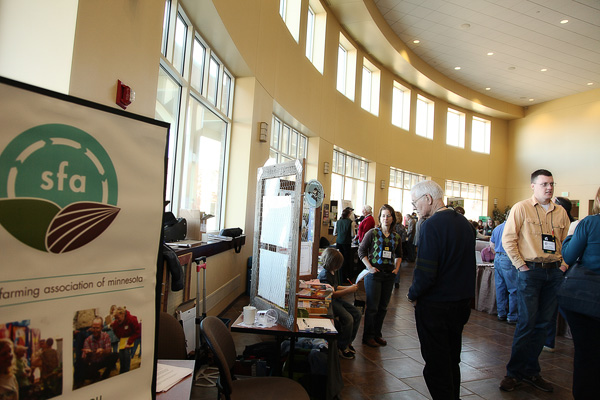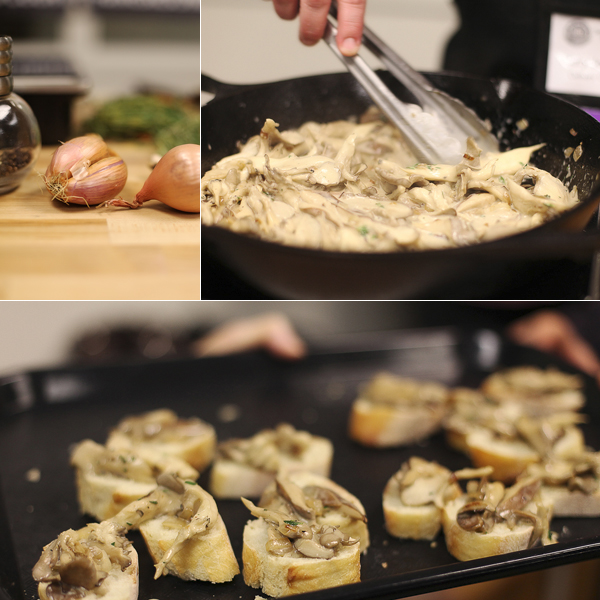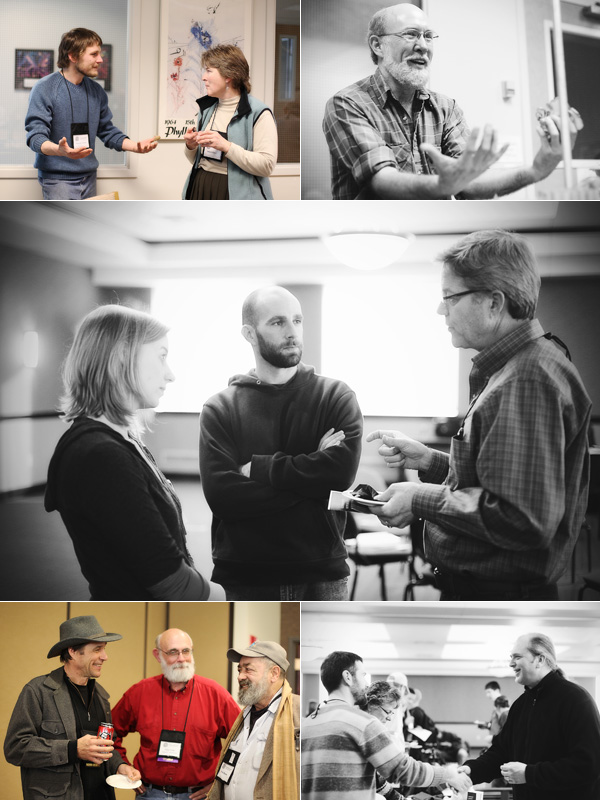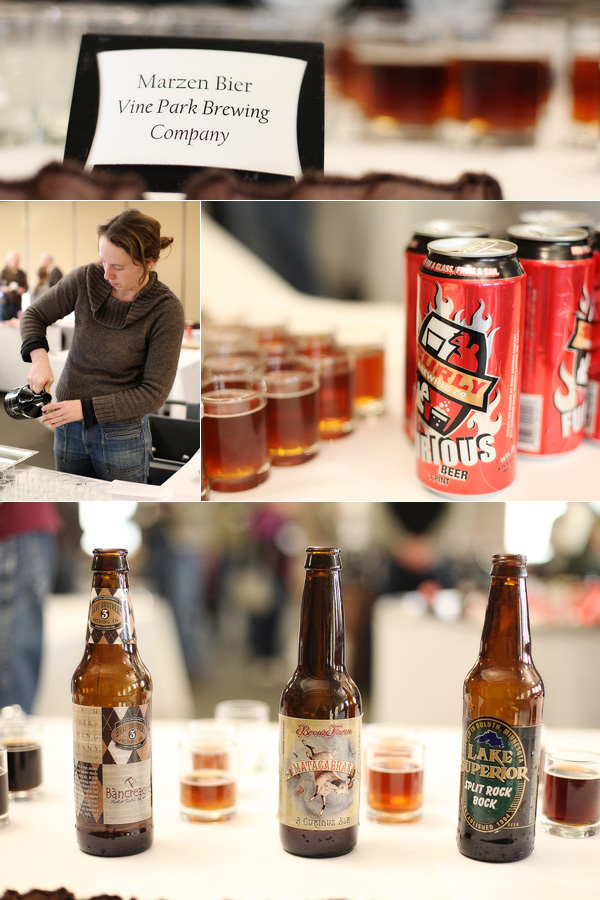
Tricia Cornell, Susan Pagani, and Emily Schnobrich contributed to this story.
“It’s a really fun time to be a farmer,” says Thomas Barthel. “We are just now realizing that people want to have a farmer of their own. It’s exciting. I get what are practically love letters from people about our beef. Then they go to church in the morning and tell their friends about the fun they had on our farm on Saturday.”
Barthel, who raises grass-fed beef on Snake River Farm in Becker, has a warm grin and a ruddy face that shows his time out in the pastures. He’s wearing jeans and a denim shirt with his farm’s logo. When we chatted, he had just finished talking e-newsletters, social media, blogging platforms, and customer retention during a breakout session at the Sustainable Farming Association’s annual conference in St. Joseph on Feb. 18.
After spending the day with Barthel and about 200 other farmers, we feel pretty confident saying that, yes, indeed, it’s a pretty exciting time to be a farmer. And, as we were constantly reminded, what’s exciting for farmers is exciting for those of us who eat their food.
The conference explored everything from social media to the stresses of farming. While one small but intense group scribbled notes about the organic certification process, a louder and larger group turned a session on meat processing into an enthusiastic conversation about mobile processing units (apparently the next big thing). In a discussion of the benefits of raw milk it was 100 percent clear where the largely rural crowd stood (firmly pro), while even an hour and a quarter wasn’t enough to clear the air on the intricacies of the Farm Bill (whole grad school courses are taught on this). Meanwhile those looking for the next hot new crop explored Minnesota-grown mushrooms and hazelnuts (watch for upcoming Heavy Table stories on these).

While the air at the conference felt dynamic and forward-looking, the keynote speaker was a reminder that the current wave of enthusiasm and optimism is a new phenomenon in farming.
For nearly 30 years, psychologist Val Farmer has been talking to farmers about the challenges of rural living through his radio shows and newspaper columns, which are syndicated across the U.S. and Canada. Dr. Farmer spoke to the crowd in kindly tones about the stresses of farming — which he called a solitary occupation — and how isolation can undermine a farmer during a crisis. He counseled farmers to take comfort in their marriages and in God, to talk openly about farm matters with their wives and children, and to maintain life balance. “People need a sense of humor, even if it is gallows,” he said. “If you can look at your situation and see the absurdity, like faith in God, it gives you an extra level of detachment. If you can laugh at yourself, you have an edge no one can take away.”
Detachment was an important theme, as Dr. Farmer told folks to focus on the long-term goals of the farm and to not allow pride to keep them from dealing with the financial realities of the farm. “It’s not an end in itself and it’s not a treasure,” he said. “It’s a means — to the happiness and nourishment of your family.”
At its core, this all seemed like good advice, but we wondered how the profile of the farmer has changed in three decades. Have the farmers markets and foodie craze made their lives any less solitary? Are farmers in crisis? Do they fit into Dr. Farmer’s traditional model — God, farmer, wife, and kids?

Following up with farmers, we heard both perspectives. Amelia Neaton, co-owner and farmer at Sweet Beet Farms found the talk helpful. “Dr. Farmer is a conservative guy, that’s obvious, but I thought it was neat this group was open to him,” she said. “I am transitioning a family farm, so I’m having these very conversations with my husband right now.” She added that her husband’s generation grew up within Dr. Farmer’s framework. After leaving home to go to college, it can be a struggle for returning young farmers to break out of that box and manage the family farm their own way.
Karla Pankow, co-owner and farmer at Bossy Acres, thought that Dr. Farmer had some good points, but he sounded a little old-school Farm Bureau. “I was really surprised. There was a lot of reinforcement of the traditional farmer and wife. I felt like I was back in my conservative hometown in Michigan,” she said. “I didn’t fit in as a person or a family.”
Both Pankow and Neaton said folks in Minnesota seem to understand food advocacy, to enjoy meeting their local farmers and to naturally want to be a part of the sustainable farm movement. So, as farmers, they feel supported by their community. Yet there are still those who balk at the price of locally and sustainably produced products. Hopefully, this will change as more consumers understand small farm practices and what it takes for a producer to bring goods to market. [Editor’s note: This paragraph was edited to reflect uncertainty about the source of a quotation.]

The next generation who wants to be somebody’s farmer, in beef-farmer Barthel’s words, got a peek at a curriculum for new farmers currently under development. Jim Paulson of the University of Minnesota Extension program introduced a four-fold, web-based curriculum being developed in partnership with the Sustainable Farming Association and the Sustainable Agriculture Research and Education Program that should be available within two years. It will include information on grazing, market gardening, soil quality, and poultry.
The team draws much of their data from the Farm Business Management Associations in Minnesota, in an effort to guide newbie farmers using information based on their own state. The downside is that this reliable slice of knowledge is both narrow and expensive to access, meaning the curriculum still has gaps. But Paulson says, “We’re trying hard not to duplicate what’s already out there. My idea is to guide and direct so you have a place to start [farming], not end.” Another Extension educator, Wayne Martin, sums it up: “Anybody could go through [the curriculum] and get something out of it.”

A smattering of under-30 farmers in the session’s audience asked the curriculum creators some difficult questions, challenging them to brainstorm further. One woman asked about water quality, and another wanted to know how to graze animals as a means to grow great vegetables. It was heartening to see a few passionate emissaries of the next generation of harvesters thinking about how best to treat the land and what lives on it.
At the end of the day, business cards were exchanged, smartphones were finally sheathed, and everybody relaxed with beer from Harriet Brewing and Surly and cheese from Shepherd’s Way and Stickney Hill. Pankow remarked that she was pleased with the diversity of the group and that the biggest value of the conference came from networking. (She had arranged a carpool on Twitter, so she obviously has the networking thing down.)
It seems likely that the next generation’s Dr. Val Farmer — whoever takes up his mantle and cares for the mental health of our food producers — will be treating the effects not of isolation but of hyper-connectedness among farmers. It’s easy to imagine a future SFA conference where farmers are advised not to reach out more for help, but to switch off and tune out for a while.
In the meantime, yes, it is a fun time, indeed, to be a farmer.

Comments are closed.